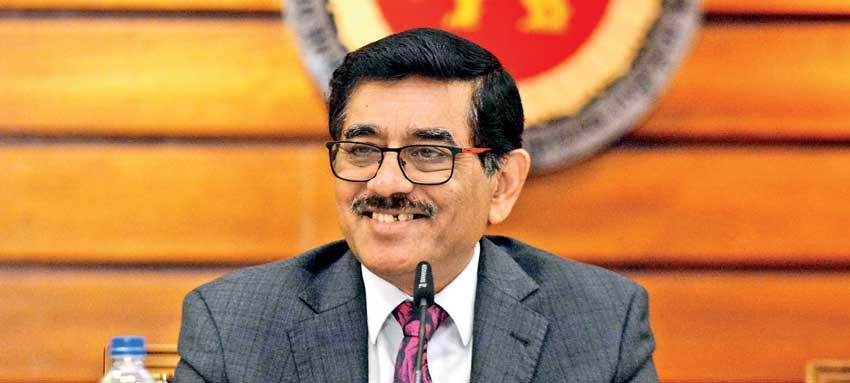06 Apr 2023 - {{hitsCtrl.values.hits}}

Dr. Nandalal Weerasinghe
PIC BY PRADEEP PATHIRANA
The Central Bank officials expressed confidence in wrapping up the negotiations with both its bilateral and commercial creditors well prior to the first review of the International Monetary Fund (IMF)-assisted programme, which would come up in six months.
Responding to a question on what the Central Bank thought on a recent statement made by President Ranil Wickremesinghe to the effect of concluding the debt restructuring negotiations when the first IMF review comes up, the Central Bank officials expressed confidence in wrapping up a deal even earlier.
“We will finalise the debt restructuring before the next IMF review,” said Central Bank Governor Dr. Nandalal Weerasinghe, who appeared more relaxed and accomplished than when he sat on the hot seat roughly a year ago, when the country was gripped by multiple crises.
After nearly a year of talks, Sri Lankan authorities managed to unlock a roughly US $ 3.0 billion lifeline from the IMF on March 21, on the promise of staying on course on the reform path in the next four years.
The first tranche of about US $ 330 was released a couple of days later, further easing the liquidity conditions in the domestic foreign currency markets and also rekindling confidence among investors and other creditors to loan again to Sri Lanka.
Dr. Weerasinghe and Treasury Secretary Mahinda Siriwardana last week made an investor presentation, kicking off the formal debt restructuring process, where they said any domestic debt restructuring (DDR) shouldn’t threaten the stability of the country’s banking system.
The slump in the prices of US bonds held by the US regional banks, in response to the sharp hike in rates by the US Fed, shook the banking sector there and brought down two regional lenders while causing distress to a few other regional banks with similar profiles. The recent banking sector turmoil has caused global central banks to either slowdown or pause their aggressive rate hike plans to tame inflation.
Dr. Weerasinghe affirmed that no restructuring would occur for the Treasury bills belonging to others outside what the Central Bank holds and added that the bonds could be restructured if the holder requests to do so.
Out of the total outstanding bill stock, the Central Bank holds about 60 percent.
Responding to a question on offering what some started calling as GDP-linked bonds when restructuring foreign debt, Dr. Weerasinghe said he too only heard it in the media and knew nothing about it.
23 Nov 2024 29 minute ago
23 Nov 2024 1 hours ago
23 Nov 2024 3 hours ago
23 Nov 2024 4 hours ago
23 Nov 2024 5 hours ago